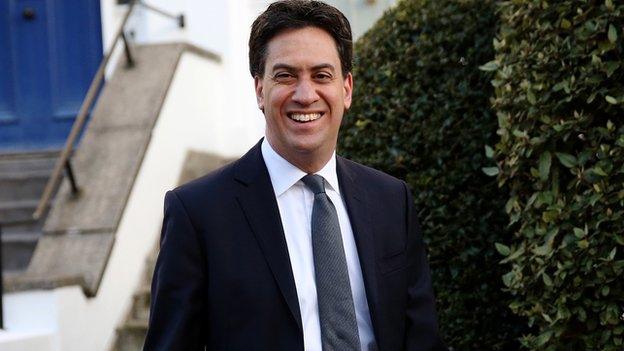UKIP's Farage wants 50,000-a-year cap on migrants
- Published
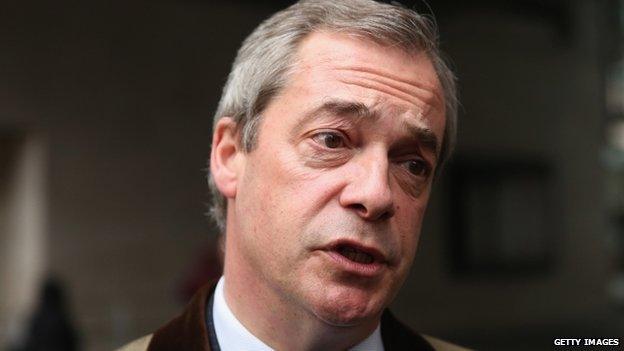
UKIP Leader Nigel Farage said the idea of a cap on net migration was ludicrous
UKIP leader Nigel Farage has said he would like to see the number of immigrants to the UK "below 50,000 a year" but says an overall cap on net migration would be "ludicrous".
He told the BBC governments could not stop people leaving the country, so net migration targets were "impossible".
He has accused David Cameron of being "wilfully dishonest" when he pledged to cap net migration to tens of thousands.
The Conservatives said Mr Farage "makes up his policies as he goes along".
Last month Mr Farage denied that his party had done a U-turn on the issue, after he said they would not set an annual target - days after a party spokesman said work-related immigration should be capped at 50,000 a year.
'Ludicrous' targets
Earlier this week he said he would like to see immigration return to "normal levels" of "about 30,000" a year.
Immigration
UKIP
Main pledges
- Points system used to select migrants with skills and attributes needed to work in the country
- Immigration capped at 50,000 people a year for skilled workers
- Five-year ban on immigration for unskilled workers
- Five-year wait before migrants can claim benefits
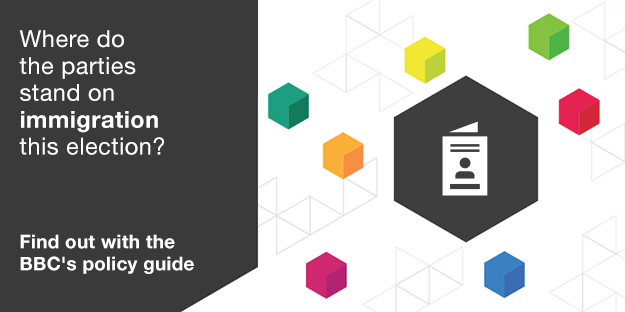
In an interview ahead of Thursday's TV debate involving seven party leaders, Mr Farage said that was a target, not a cap, as caps for net migration - the difference between the number of people leaving the UK and the number coming in for at least a year - were "ludicrous".
But as he discussed having an "Australian-style points system" - which includes a cap - he was pressed on the issue on BBC Radio 4's Today programme.
He said there was a "flood" of labour coming into Britain "taking minimum wage jobs" and often undercutting British workers - driving down wages and damaging "the lifestyles of millions of British families".
EU membership
Asked what his Australian-style cap on people coming into the UK would be, Mr Farage said: "It's below 50,000 a year, all right? It's below 50,000 a year. Simple as that.
"But this whole debate we've been tied up with caps for five years. It's devalued the debate. What we're not actually addressing is the fact that 624,000 people settled in Britain last year and that we have no control over the numbers that settle this year or next year.

Reality Check

Anthony Reuben, BBC head of statistics
Nigel Farage said on the Today programme on BBC Radio 4 that between 1990 and 1997: "Net migration to Britain ran at between 30,000 and 50,000 people a year - that was normality."
He's not exactly right about those figures. In 1992, net migration was minus 13,000 and in 1993 it was minus 1,000. So in both of those years more people left than arrived.
In 1994, it was 77,000, in 1995 it was 76,000 and in 1996 it was 55,000.
So in fact, in the eight-year period to which he referred, net migration was only in the range of 30,000 to 50,000 for three years.
Read Anthony's full post for more.

"Let's be honest, we cannot have any debate about immigration about numbers, all the while we're members of the European Union and that is what I hope will be discussed tonight."
Later he told the BBC any cap would be "flexible" and change according to the country's needs. He also said UKIP would have a moratorium on unskilled workers being allowed into the country and said that while plasterers and electricians would be classified as skilled workers - whether they would be allowed in would change depending on demand.
Conservative Immigration Minister James Brokenshire said: "Nigel Farage makes up his policies as he goes along. One moment it was 50,000, then it was 30,000 and then there was nothing at all. It's very difficult to put any credibility on anything that UKIP say.
"Net migration is one of those key figures, it highlights the flow in and out and is what matters in terms of public services, that's why I think UKIP are completely mistaken on this, why that absolutely remains a key factor."
David Cameron pledged in 2011 to reduce the number of migrants coming to the UK to levels last seen in the 1990s, about "tens of thousands" each year.
But the target has not been met, with figures showing net migration rose to 298,000 for the year ending in September 2014 - higher than when he came to office.
'Blown off course'
Downing Street said the rise had been driven in part by Britain's economic success relative to its neighbours in the Eurozone.
Speaking on BBC Breakfast, Labour's David Lammy said the Conservatives had committed to a "silly target" on net migration which they had "spectacularly missed" and accused them of cutting funding for English language classes that could help integration.
He said there were not too many immigrants in the UK, adding: "If you look at our population, it can manage, there are huge green spaces in the country where there aren't immigrants."
Mr Cameron has promised to renegotiate the terms of Britain's membership of the EU and put it to a public vote in 2017, if the Conservatives win in May.
Labour has said it does not support an in/out referendum, while Lib Dem leader Nick Clegg said his party would not "play footsie" with the idea of leaving the EU - although he has refused to say he would block a referendum as part of any coalition deal.
- Published31 March 2015
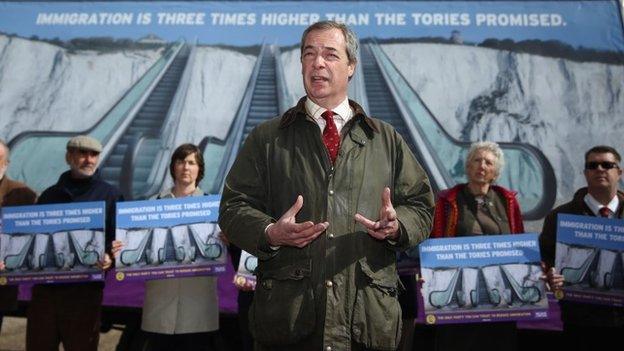
- Published31 March 2015
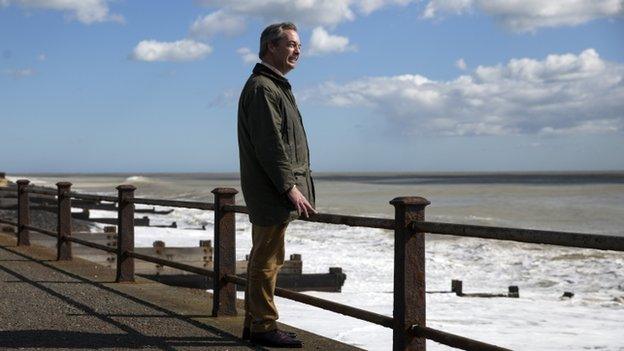
- Published26 February 2015
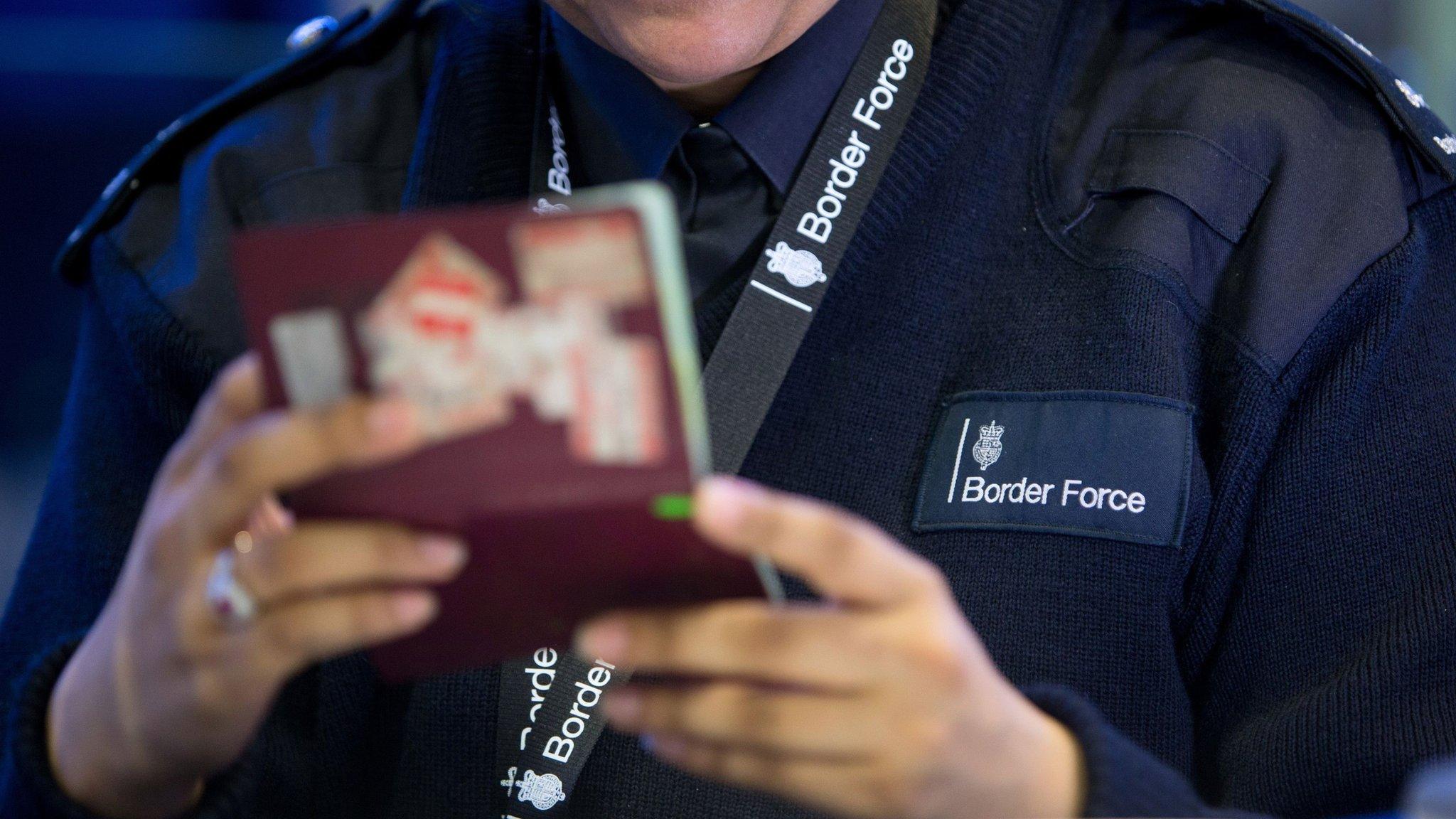
- Published30 March 2015
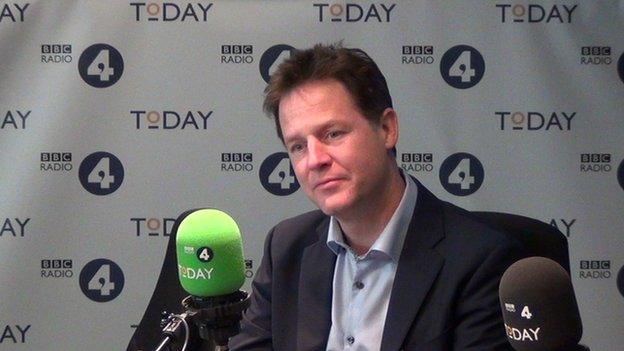
- Published21 May 2015
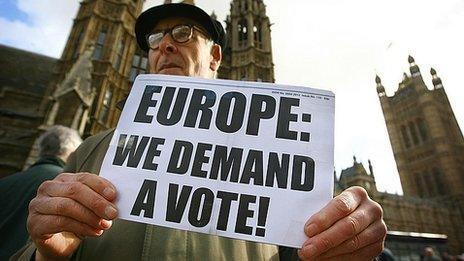
- Published23 January 2013
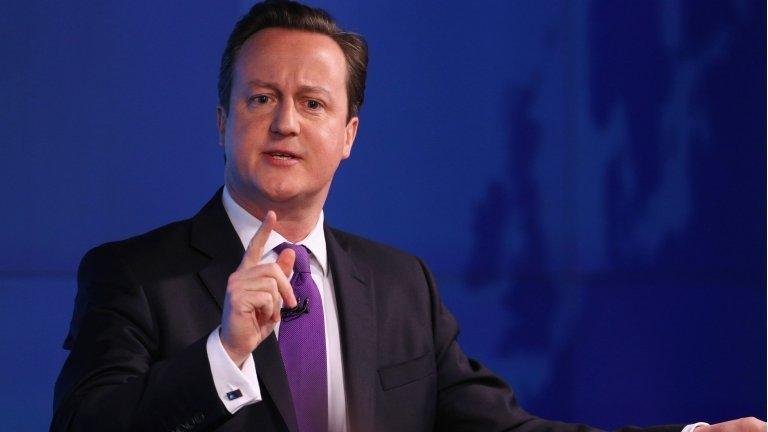
- Published24 January 2013
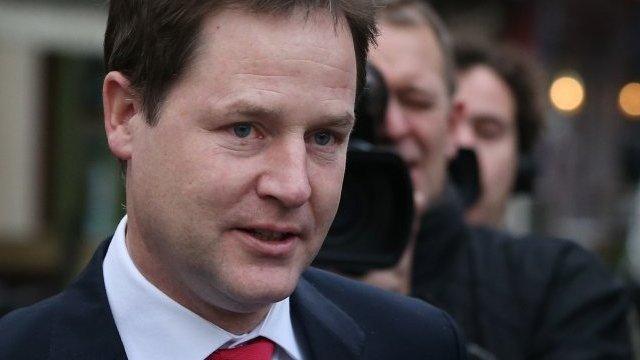
- Published30 March 2015
